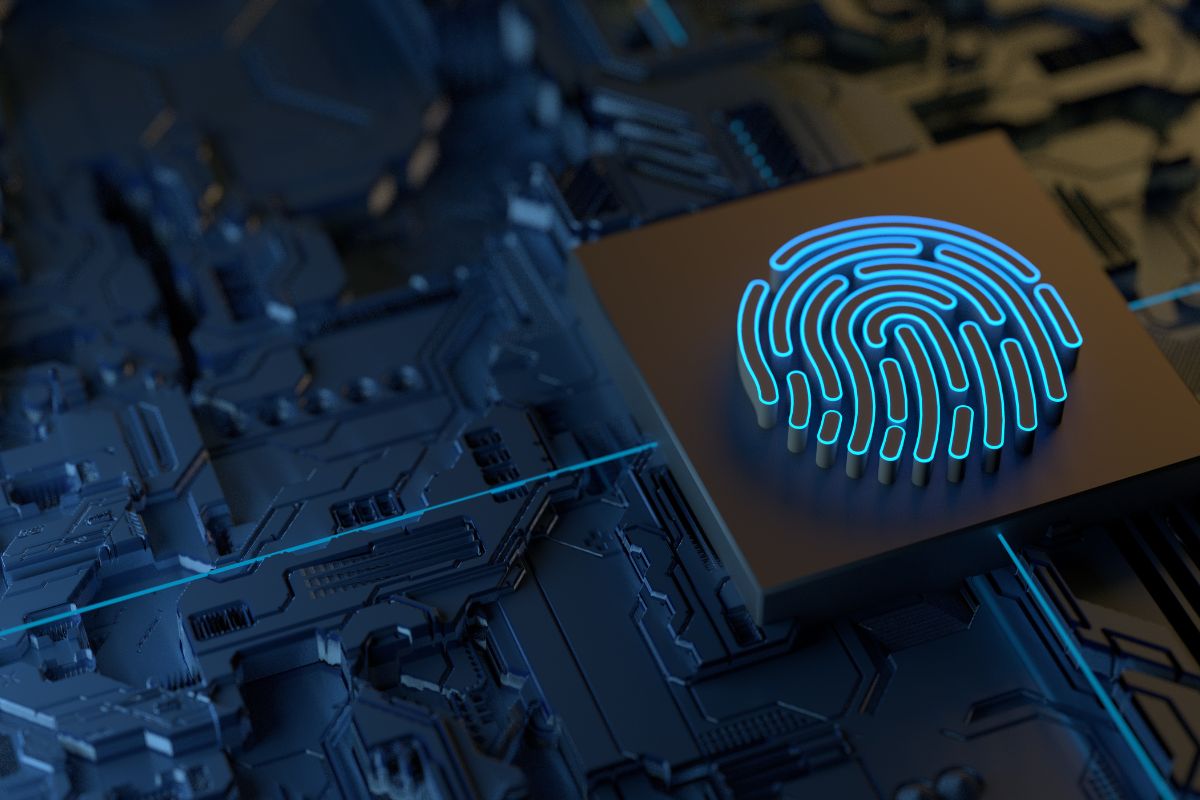
Why Cybersecurity Should Be Your #1 Priority in 2025
Cybersecurity has become an essential priority for businesses, governments, and individuals alike. The digital transformation of industries has introduced new vulnerabilities that cybercriminals exploit to gain unauthorised access to sensitive data. As cyber threats continue to evolve, businesses must adopt proactive security measures to mitigate risks. In 2025, cybersecurity threats are expected to be more sophisticated, requiring companies to invest in advanced IT security solutions.
This article explores the importance of cybersecurity, the evolving threat landscape, key security measures, and how businesses can stay ahead of cybercriminals. Ignoring cybersecurity could result in financial, operational, and reputational damage.
The Evolving Cyber Threat Landscape
The cybersecurity landscape is changing rapidly, with cybercriminals employing more advanced tactics to breach security defenses. Ransomware, phishing, and AI-driven attacks are becoming more common, targeting businesses of all sizes. The global increase in cybercrime has led to higher financial losses, making cybersecurity a critical business priority. Hackers are leveraging artificial intelligence and machine learning to automate attacks, making it harder for traditional security measures to keep up. In response, businesses must adopt a proactive security approach, integrating AI-powered threat detection systems and conducting regular security audits to prevent cyber incidents before they occur.
Why IT Security Must Be a Business Priority
Cybersecurity is no longer just an IT concern—it is a fundamental business issue. A single cyberattack can lead to financial losses, legal consequences, and damage to a company’s reputation. For small businesses, a security breach could mean shutting down permanently due to the high costs associated with data recovery and legal penalties. Cybersecurity should be integrated into the overall business strategy, ensuring that security policies align with operational goals. Organisations that fail to prioritise IT security risk losing customer trust, facing regulatory fines, and suffering severe operational disruptions. Investing in cybersecurity safeguards business continuity and long-term success.
Regulatory Compliance and Data Protection Laws
Governments worldwide are tightening cybersecurity regulations to protect consumer data and ensure businesses maintain strict security measures. Compliance with laws such as the General Data Protection Regulation (GDPR), the California Consumer Privacy Act (CCPA), and the Network and Information Security Directive 2 (NIS2) is now mandatory for businesses handling sensitive data. Failing to comply with these regulations can result in significant financial penalties and legal consequences. Organisations must stay informed about changes in cybersecurity regulations, conduct regular compliance audits, and implement strong data protection measures to avoid fines and maintain a trustworthy reputation in their industry.
Key IT Security Measures for 2025
To effectively combat cyber threats, businesses must implement the following essential IT security measures:
- Zero Trust Architecture (ZTA): A security framework that requires continuous verification of every user and device before granting access to resources.
- Multi-Factor Authentication (MFA): Strengthens access control by requiring multiple forms of identity verification before granting access to accounts and systems.
- Endpoint Security: Protects all network-connected devices, including laptops, smartphones, and IoT gadgets, from cyber threats.
- Cloud Security Strategies: As cloud adoption increases, businesses must implement encryption, access controls, and continuous monitoring to protect cloud-stored data.
- AI-Powered Threat Detection: Uses machine learning and artificial intelligence to analyse network traffic and detect potential threats before they cause harm.
- Data Encryption: Ensures sensitive information is encoded so that only authorised parties can access it, preventing unauthorised data leaks.
The Role of Employees in Cybersecurity
Employees are often the weakest link in an organisation’s cybersecurity strategy. Many cyberattacks succeed due to human error, such as clicking on phishing emails or using weak passwords. Organisations must provide regular security awareness training to educate employees on the importance of cybersecurity and how to recognise threats. Encouraging employees to use strong passwords, avoid suspicious links, and report potential security incidents can significantly reduce cyber risks. Implementing strict access controls and monitoring employee activities also helps prevent insider threats and accidental data leaks, strengthening an organisation’s overall cybersecurity posture.
Investing in IT Security: Cost vs. Consequences
While cybersecurity investments may seem expensive, the cost of a security breach is significantly higher. Businesses that neglect IT security may face data breaches that result in financial losses, legal fees, and reputational damage. The average cost of a data breach in 2024 exceeded $4 million per incident. On the other hand, implementing robust cybersecurity measures reduces the likelihood of breaches, ultimately saving businesses money in the long run. Companies should view cybersecurity as an essential investment rather than an unnecessary expense. Allocating resources to cybersecurity ensures long-term business stability, customer trust, and regulatory compliance.
Future Trends in Cybersecurity
As technology advances, cybersecurity threats and defense strategies continue to evolve. The following trends are expected to shape the cybersecurity landscape in 2025:
- AI and Automation: AI-driven security tools enhance threat detection and response times, allowing businesses to identify and neutralise cyber threats more efficiently.
- Quantum Computing: The rise of quantum computing poses new challenges for encryption methods, necessitating stronger cryptographic security.
- Biometric Authentication: More businesses are adopting biometric authentication methods, such as facial recognition and fingerprint scanning, to enhance security.
- Cybersecurity Mesh: A decentralised security model that ensures protection across multiple environments, reducing vulnerabilities in cloud and hybrid networks.
- Blockchain Security: Blockchain technology is being leveraged to enhance data integrity and prevent unauthorised alterations to critical information.
Why Choose Cybersecurity as Your Top Priority?
As cyber threats become more sophisticated, organisations and individuals must recognise the importance of prioritising IT security. Here’s why focusing on cybersecurity in 2025 is crucial:
1. Growing Cybercrime Industry
Cybercrime is one of the fastest-growing illegal industries, generating billions of dollars annually. Hackers use advanced techniques, including AI-driven attacks and ransomware, to exploit weaknesses. Without strong cybersecurity defenses, businesses and individuals remain vulnerable to financial and reputational losses.
2.Protection of Sensitive Data
Every organisation handles vast amounts of sensitive data, including customer details, financial records, and trade secrets. A single data breach can expose this information to cybercriminals, leading to identity theft, legal consequences, and financial loss. Investing in robust cybersecurity solutions prevents unauthorised access and secures digital assets.
3. Trust and Brand Reputation
In today’s digital landscape, trust is paramount. A company that experiences a cyberattack may struggle to regain customer confidence. Consumers prefer brands that prioritise data security, and a strong cybersecurity framework reassures clients that their information is safe, enhancing business credibility.
4. Operational Continuity
Cyberattacks such as ransomware and distributed denial-of-service (DDoS) attacks can cripple business operations. Without adequate security measures, companies face prolonged downtime, affecting revenue and customer satisfaction. Cybersecurity investments ensure systems remain operational and resilient against cyber threats.
5. Cost Savings in the Long Run
While cybersecurity investments may seem costly upfront, they are significantly cheaper than the financial and reputational damages resulting from a cyberattack. Businesses that proactively implement security measures avoid costly data recovery efforts, regulatory fines, and lost revenue from operational disruptions.
6. Regulatory and Compliance Requirements
Compliance with industry regulations is no longer optional. Organisations operating in finance, healthcare, and e-commerce must adhere to strict cybersecurity regulations. Failing to meet these standards results in fines and loss of business credibility. Investing in IT security ensures compliance and avoids legal complications.
7. Evolving Cyber Threats & AI-Driven Attacks
Cybercriminals are leveraging AI to create more sophisticated attacks, including deepfake scams, automated hacking tools, and AI-powered phishing. Traditional security measures are no longer sufficient. Organisations must adopt AI-driven cybersecurity solutions to stay ahead of evolving threats and protect digital infrastructure.
8. Rise in Remote Work and Cloud Adoption
The rapid shift to cloud-based applications and remote work environments has increased security vulnerabilities. Organisations relying on cloud storage, collaboration tools, and remote access networks must implement stringent security measures to protect confidential data and prevent unauthorised access.
9. Insider Threats and Human Error
Employees remain one of the weakest links in cybersecurity. Unintentional errors, such as clicking on phishing emails or misconfiguring security settings, can lead to severe breaches. Regular cybersecurity training, strict access controls, and monitoring tools help mitigate risks associated with insider threats.
10. Cybersecurity as a Competitive Advantage
Companies that prioritise cybersecurity gain a competitive advantage in their industry. Businesses that can prove they have strong security measures attract more customers, partners, and investors. A solid cybersecurity reputation enhances credibility and provides long-term growth opportunities.
Conclusion: Take Action Now to Stay Secure
IT security is not an option—it is a necessity. As cyber threats become more sophisticated, organisations must adopt proactive security measures to safeguard their data and operations. Adopt cyber security services helps businesses prevent financial losses, maintain customer trust, and stay compliant with regulations. Investing in cybersecurity training, advanced security tools, and continuous monitoring ensures a strong security posture. The time to act is now—waiting until an attack occurs could be too late. By making IT security a top priority in 2025, businesses can build a secure and resilient digital future.
